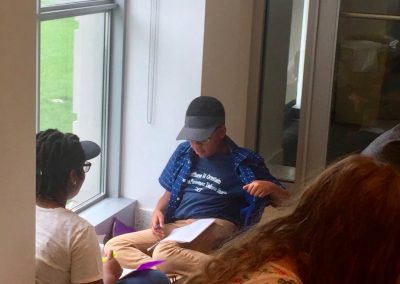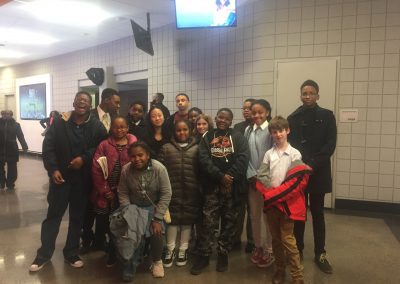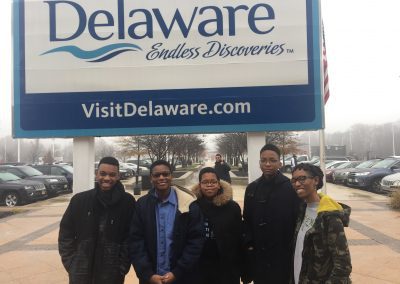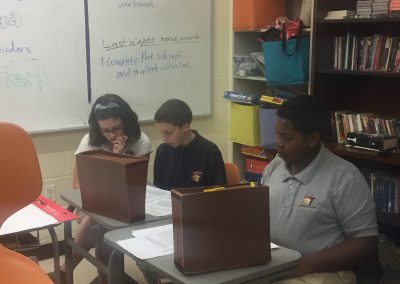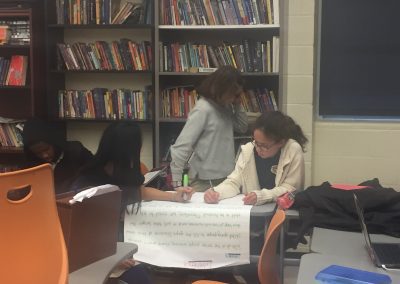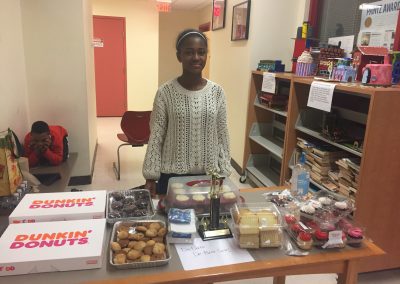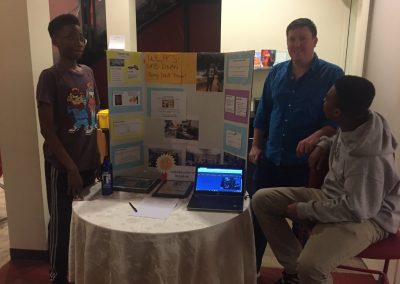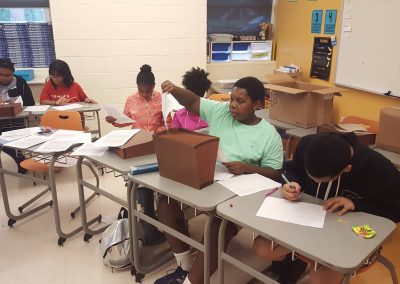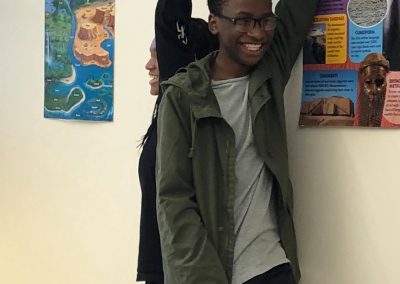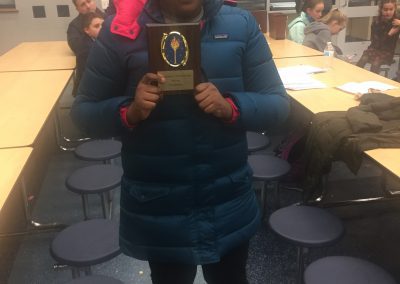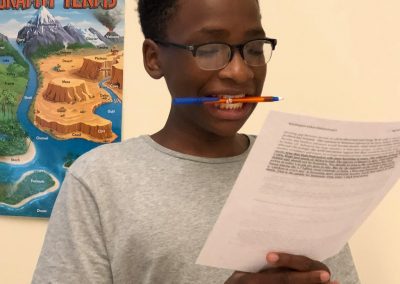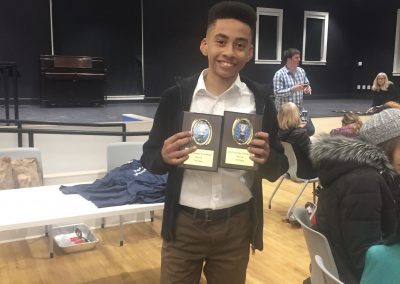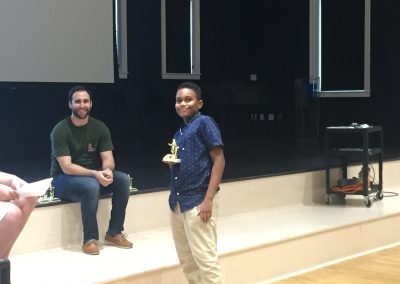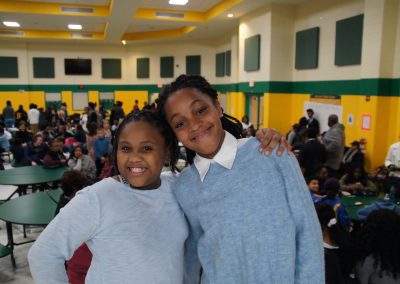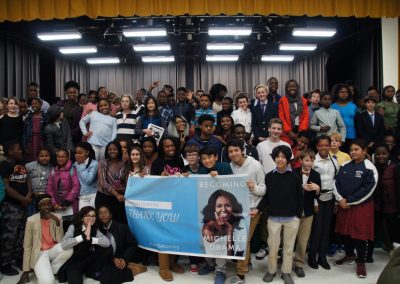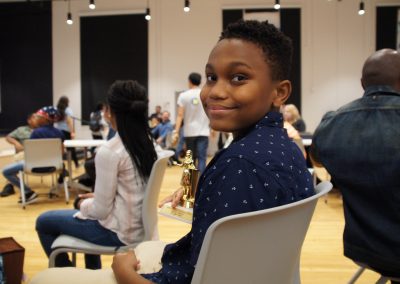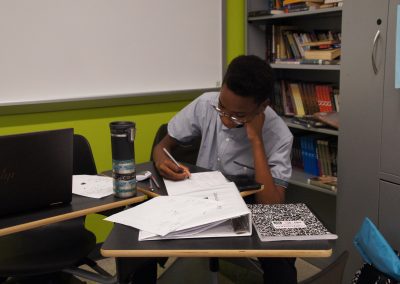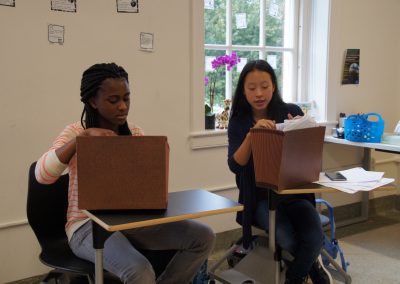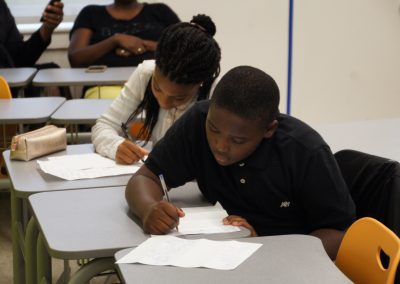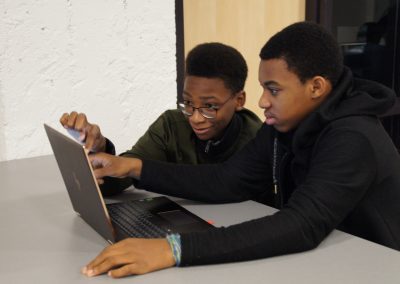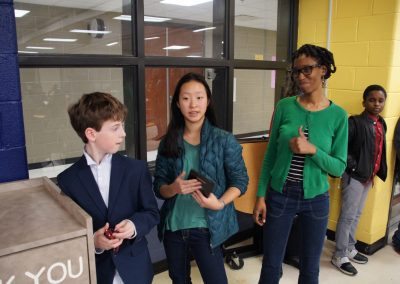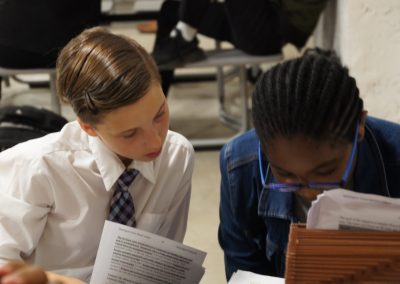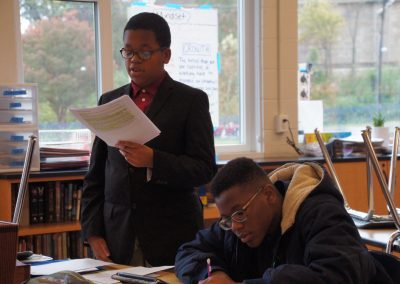DEBATE
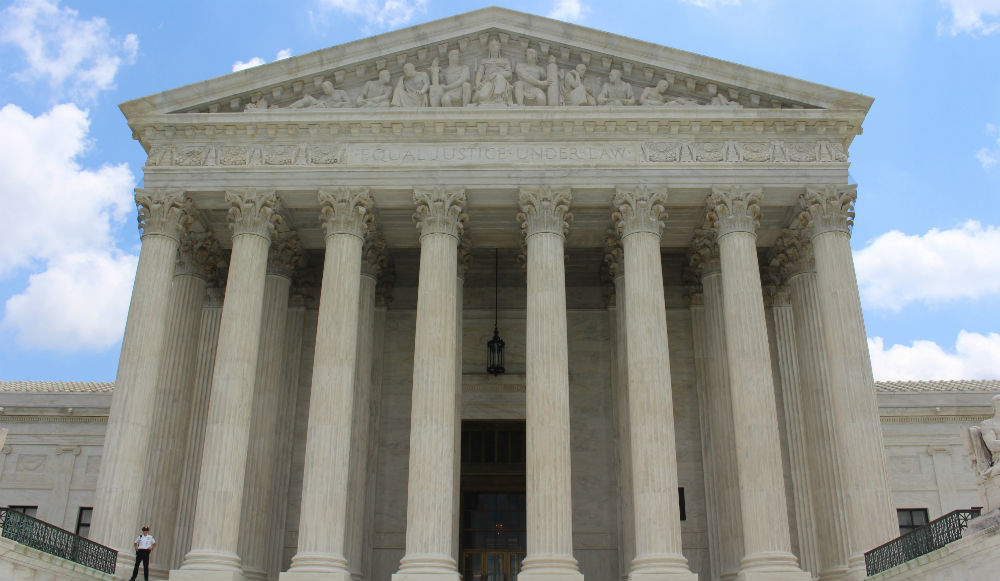
WLPCS Great Debaters
Who are the Great Debaters?
The Great Debaters is the Washington Latin Public Charter School’s Policy Debate team, led by coach Brittany Selah Lee-Bey. The Latin Policy Debate team began during the 2016-2017 school year with two sixth grade students in the novice division. By the middle of the season, they were elevated to the junior varsity division after victoriously achieving a 3-1 record at two novice tournaments. Today, 30 Latin students participate in monthly tournaments via the Washington Urban Debate League (WUDL), and debates against schools in DC and Prince George’s county.
(Latin also has a middle and upper school Model UN Club. For information on these activities, please contact Reggie Wills, MS History teacher- rwills@latinpcs.org or Joyce Hamd, US History teacher- jhamd@latinpcs.org.)
Check out the NY Times article featuring the Washington Urban Debate League with a quote from Latin debater Brooke Roberson!
Join the team!
All students at Latin interested in policy debate are welcome to join the Great Debaters! Virtual practices will be on Wednesdays at 2pm. Please see below for upcoming events and tournaments. For questions about the team, please contact Brittany Selah Lee-Bey (bleebey@latinpcs.org).
WLPCS Great Debaters
Who are the Great Debaters?
The Great Debaters is the Washington Latin Public Charter School’s Policy Debate team, led by coach Brittany Selah Lee-Bey. The Latin Policy Debate team began during the 2016-2017 school year with two sixth grade students in the novice division. By the middle of the season, they were elevated to the junior varsity division after victoriously achieving a 3-1 record at two novice tournaments. Today, 30 Latin students participate in monthly tournaments via the Washington Urban Debate League (WUDL), and debates against schools in DC and Prince George’s county.
(Latin also has a middle and upper school Model UN Club. For information on these activities, please contact Reggie Wills, MS History teacher- rwills@latinpcs.org or Joyce Hamd, US History teacher- jhamd@latinpcs.org.)
Check out the NY Times article featuring the Washington Urban Debate League with a quote from Latin debater Brooke Roberson!
Join the team!
All students at Latin interested in policy debate are welcome to join the Great Debaters! Virtual practices will be on Wednesdays at 2pm. Please see below for upcoming events and tournaments. For questions about the team, please contact Brittany Selah Lee-Bey (bleebey@latinpcs.org).
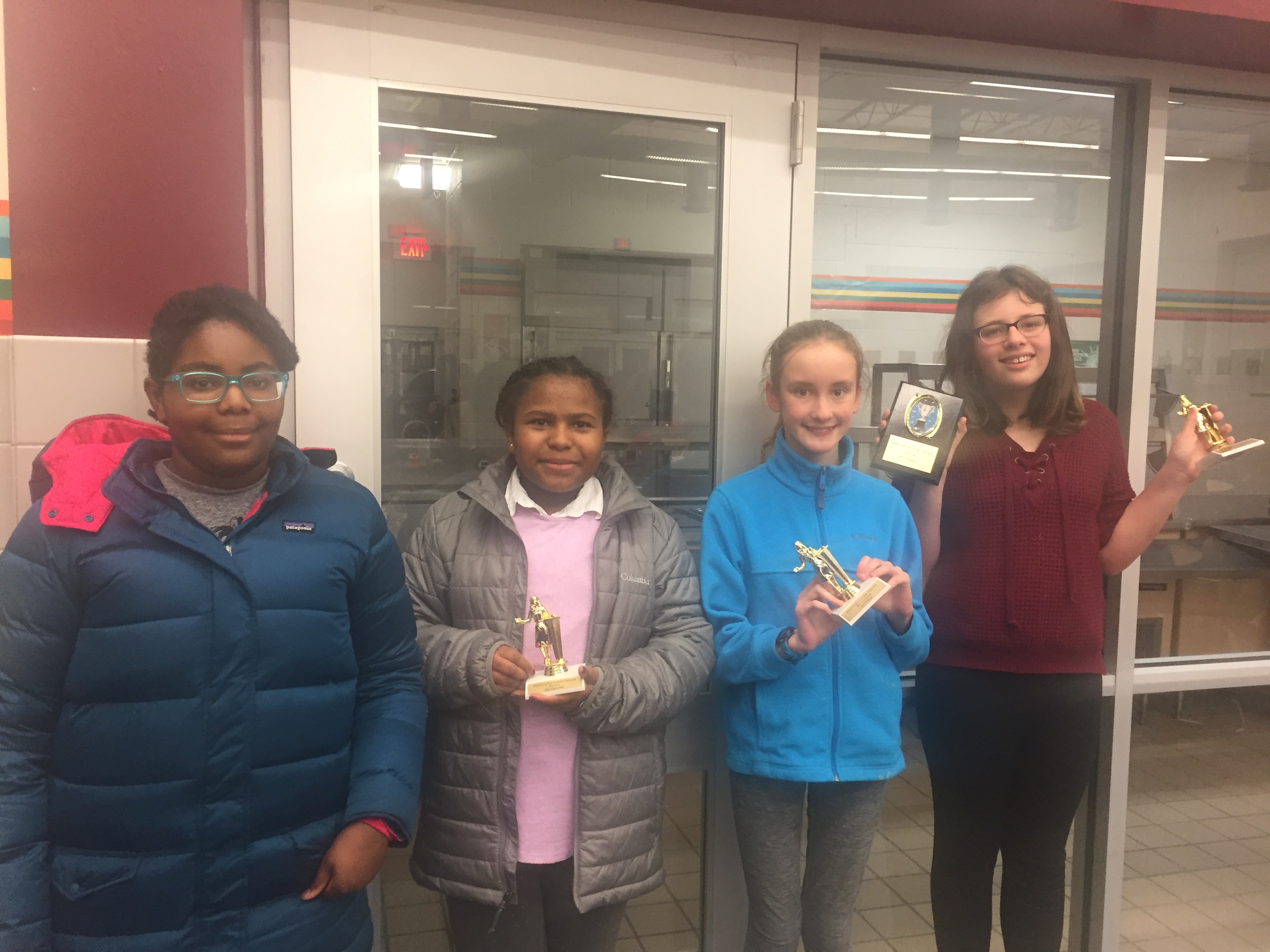
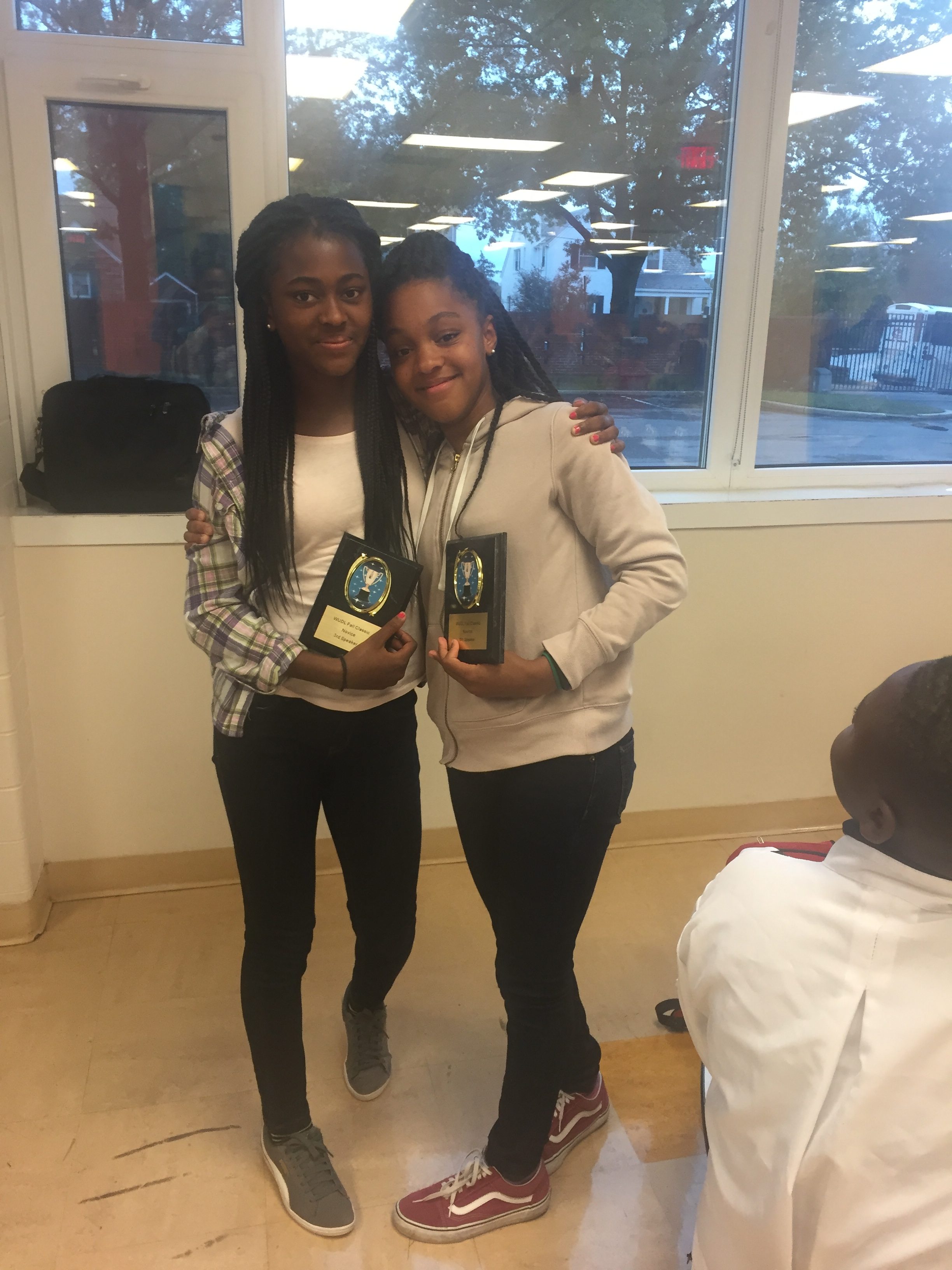


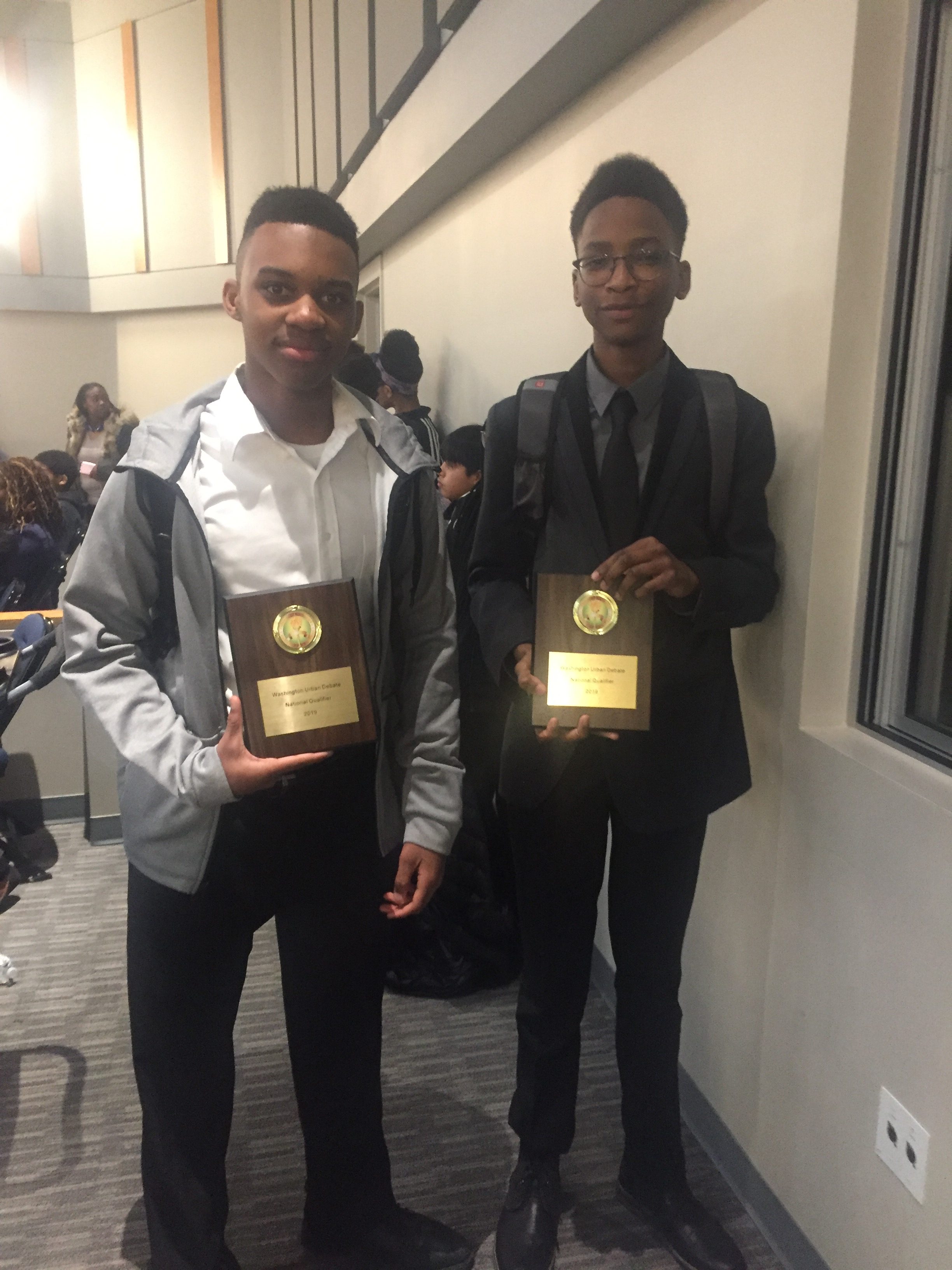


Awards and Tournaments
This past summer, Washington Debate debaters participated in the sixth Ornstein Summer Debate Institute with the Washington Urban Debate League. Sheridan Easterling was nominated for the annual Matthew H. Ornstein Outstanding Debater Award. As noted on WUDL’s website, “The Matthew Harris Ornstein Outstanding Debater Award is one of the most prestigious awards we give out all year. It recognizes students who go above and beyond during the summer institute, demonstrating the sportsmanship, humor, hard work, personal growth, leadership, and competitive success that defined Matthew.” We are very proud of Sheridan’s commitment and excellence in argumentation and public speaking. Congratulations!
Next Tournament
The first tournament of the 2020-2021 school year is on October 10th! More to come!









Awards and Tournaments
This past summer, Washington Debate debaters participated in the sixth Ornstein Summer Debate Institute with the Washington Urban Debate League. Sheridan Easterling was nominated for the annual Matthew H. Ornstein Outstanding Debater Award. As noted on WUDL’s website, “The Matthew Harris Ornstein Outstanding Debater Award is one of the most prestigious awards we give out all year. It recognizes students who go above and beyond during the summer institute, demonstrating the sportsmanship, humor, hard work, personal growth, leadership, and competitive success that defined Matthew.” We are very proud of Sheridan’s commitment and excellence in argumentation and public speaking. Congratulations!
Next Tournament
The first tournament of the 2020-2021 school year is on October 10th! More to come!
Future Tournaments
The first tournament of the official season will be WUDL’s Season Opener on October 10th. More details to come!
WUDL Fall Class– October 31, 2020
Urban Debate Dragon Invitational Finals Bid, TOC, November 13 – 15- November 13, 2020
WUDL Holiday Classic– December 12, 2020
WUDL Winter Classic– January 23, 2021
WUDL National Qualifier– February 20, 2021
WUDL March Madness– March 20, 2021
Urban Debate National Championship (HS)- Date TBD
Urban Debate Middle School National Tournament Tentatively in Tulsa– April 30, 2021
Debate Resources
The following should help you prepare for the next tournament. Below are some videos covering key skills, like flowing and cross ex questions.
Introductory Videos
- Introduction to Policy Debate
- Flowing (note-taking) video
- Cross-ex video 1
- Cross-ex video 2
- Cross-ex video 3
- Atlanta UDL Demo Debate: This demo debate covers last year’s topic- arm sales. It is also is a example of a nice, clean debate round.
- Debating the affirmative pt.1 and pt. 2
- Debating the negative pt. 1 and pt. 2
- Rebuttal/Refutation
- Impact Analysis
- Off-Case arguments
JV/Varsity Videos
- Off-case arguments
- Framework
- Theory
Debate Topics 2020-21
Below are links to resources to help you prepare for debate tournaments. We will periodically share information intended to give debaters background knowledge about the case files on this page throughout the year.
The 2019-2020 policy debate topic is:
Resolved: The United States federal government should enact substantial criminal justice reform in the United States in one or more of the following: forensic science, policing, sentencing.
Debaters argue in favor or against criminal justice reform policy in the areas of forensic science (DNA, fingerprinting, etc.); policing; and sentencing. Some plans include (but are not limited to) reforming the police, school resource officers, decriminalization, overpolicing white supremacy groups, etc. Students should pay close attention to current events regarding criminal justice reform.
The First Step Act was a bipartisan effort which made minor changes to the criminal justice system that didn’t go far enough. What it did was spark a conversation which in turn produced a wealth of literature that would be ripe for debate. As the nation with the most incarcerated people per capita we have an obligation to find ways to reform our current system; this resolution offers students the opportunity to explore a plethora of options. Affirmatives can explore different ways to improve policing. These could include, but is not limited to, body cameras, increased community policing, instituting community review boards to investigate police misconduct or can overturn Supreme Court decisions that have increased protections for police officers. When seeking to address forensic science affirmatives can explore the accreditation standards for crime labs, change how evidence is handled, increase testing to establish validity in crime lab results, or institute statutory mechanisms that allows individuals to prove their innocence in court based on evolving science or expert reputation. With respect to the third area of sentencing, affirmatives can change/end mandatory minimum sentencing, can change the way drug crimes are sentenced, or could abolish/change the requirements for the death penalty. Negatives can argue that reforming forensic science would have catastrophic impacts for evidence collection or would lead to an increase in mistakes made in crime labs. When negating policing, teams can argue that increased reform on policing would lead to officers leaving the profession, could mobilize the creation of underground militias, or would cause an increase of violence towards police officers. A generic circumvention argument available to negatives could be that those in power, specifically, Attorney General Barr, will choose to not enforce whatever the affirmative does. Negative teams have access to agent CPs that test the mechanism of the aff; there is a debate to be had on whether Congress or the courts are more effective at initiating reform in the Criminal Justice System. Disadvantage ground would include Federalism DAs that challenge the roles both the federal and state governments play in the criminal justice system, Backlash DAs in the form of police officers rebelling agains
The following is the link for the case files. Remember, novice is bound to use the novice evidence packet, while JV must only stick to the plan-text. Varsity debaters will be writing their own case files.
Criminal Justice Reform Topics
Below are articles that can help you prepare for the criminal justice reform topic this year:
- WP article on how public support for police declines
- WP article on the need for police reform
- Vox article on abolishing the police
- Brookings article on defunding the police
- US News article on school resource officers and the school-to-prison pipeline
- WP article on the power of body-worn cameras
- Parkland Officer Who Stayed Outside During Shooting Faces Criminal Charges



